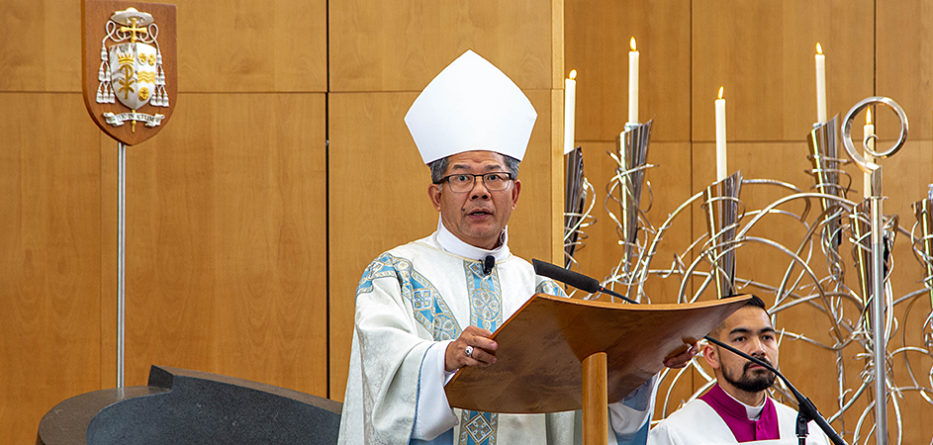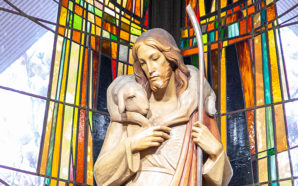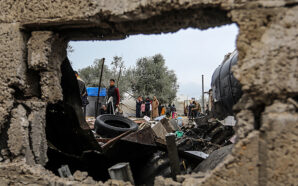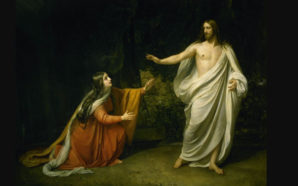Most Reverend Vincent Long Van Nguyen OFM Conv DD STL, Bishop of Parramatta
Homily from the Feast of the Nativity of the Blessed Virgin Mary and the Catholic Education Diocese of Parramatta Mass at St Patrick’s Cathedral, Parramatta.
Readings: Micah 5:1-4; Psalm 12(13):6-7; Matthew 1:16, 18-23
8 September 2022
Imitating Mary’s incarnate faith and active discipleship
Dear brothers and sisters,
Today, we gather to celebrate Catholic education in the Diocese of Parramatta which I am proud to say was where it all began and spread like a good oil to the rest of the country. From its very inception, it was an act of prophetic courage, defiance and disruption. Catholic education did not come to existence because Catholics wanted to create a ghetto. Rather, it came into existence because in the words of Mary MacKillop, our pioneers saw a need and decided to do something about it. That unmet need was the poor, the unmarried mothers, the underprivileged and those who could not have afforded a quality education for their children otherwise. So, our pioneers launched into the deep and modelled an inclusive, caring and wholesome way of being together.
We are privileged to stand on their shoulders and continue to foster their legacy. Whether we are pastors, principals, leaders, teachers, parents, guardians and students, we have been called to accompany others on the journey to wholeness and to lead your learning communities to become critical yeast in critical times. In the footsteps of our pioneers, we offer an education that forms young people into men and women committed to the common good, social equity as opposed to individualism and self-interest.
The Word of God on the Feast of Mary’s birthday challenges the worldly notion of greatness. It teaches us that God reveals himself to us in powerlessness and invites us to a new way of living and relating. We must be prepared to let go of our desire to be in control and accept the way of God with humility and courage.
In the first reading, the prophet Micah speaks of the coming of the new ruler of Israel who will defy the conventional expectations. He will follow neither the pattern of the Jewish elites nor the way of the imperial rulers who use their power and wealth to exploit the poor. Micah denounces them for being preoccupied with their influence and affluence instead of seeking justice for the poor. Against their arrogance and self-centred ambition, he issues a warning that God would take up the cause of with the weak and the vulnerable.
In fact, Micah is the first prophet to identify the Messiah with Bethlehem, the place of insignificance as opposed to Jerusalem, the capital of wealth and power. This metaphor is both an indictment of the comfortable rich and a vindication of the afflicted poor. In the midst of the wheeling and dealing where everyone looks after his own interests, the prophet comforts the exploited masses and summons the Israelites to their true calling. This summons has become one of the most inspiring passages of the whole Bible. “The Lord requires of you only this: to act justly, to love tenderly and to walk humbly with our God.”
The Gospel offers us another perspective into the God of justice, compassion and solidarity. Whereas Micah condemns the movers and shakers in Jerusalem and Samaria for their self-centredness, the Gospel gives us a positive model of living for others. Joseph and Mary of Nazareth are the antithesis of indifference and apathy. They embody the God who raises up the lowly.
Like Mary and Joseph, we must be open to God’s way, which often shakes us out of our familiar and secure environment. It is not easy to learn to adapt to new ways. Yet the message to them was clear: They can no longer do business as usual. They must align their attitude and behaviour in favour of God’s revelation through signs of the times. They must see life and live it differently.
After hearing the angel’s message, Mary’s life was fundamentally changed. She aligned her heart and mind to God’s unfolding plan. She took the risk of vulnerable trust rather than holding on to her security. We must do the same as a body of Christ in the light of the signs of times. Surely we cannot go on living as if we were deaf to the cry of the poor and the cry of the earth. Surely we cannot be complicit in perpetuating a social system that favours the privileged, hollows out the care economy and undermines the foundations of an egalitarian society.
Mary is the sign of hope for humanity. Her incarnate faith and active discipleship enabled the victory of God to manifest itself in the world. She followed the downward journey of Christ in serving others in every kind of need. May the teaching and example of Jesus guide us as we endeavour to build our Church, relationships and communities that mirror the Reign of God. Jesus’ model of privileging the downtrodden, we can work towards an economy and a social structure that prioritises the care of people and the care of the environment. Today as we honour Mary, let us we live out our discipleship of commitment and service. May we not be afraid of the supposed impossibility of change in an entrenched social framework of individualism and exclusivism, because nothing is impossible to God.








